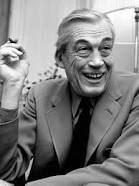
Dr. Ehrlich's Magic Bullet Page #2
- APPROVED
- Year:
- 1940
- 103 min
- 152 Views
Just beginning.
Have you verified
the work done
At the Pasteur Institute?
Louis' experiments?
That's where
I'm about at the moment.
Well, if proven,
his contention will change
Our whole perception
of bacteriology.
True, so if you
realize that thing.
What department
are you in doctor?
Dermatology.
It's extraordinary
that you should be so...
Well informed
on the subjects
So far removed
from your own field.
Are you interested
in microscopic findings?
Well, I've been
experimenting with dyes.
The new anilines.
Trying various combinations
If you'd care
to see some slides?
I'll be delighted.
- Extraordinary!
- Hm?
'The nuclei of the
white blood cells are deep blue. '
This is by far
the clearest picture
Of human blood
I've ever seen.
It seems the chemical
make-up of the nuclei
Has a special
affinity for this dye.
What do you mean affinity?
The attraction, certain atoms
possess for certain other atoms
Causes them to unite
and form compounds.
Most extraordinary.
A few minutes ago
With a dye I call
methylene blue.
It has an affinity
for the nerves of the worm.
The same phenomenon.
The whole nervous system blue.
It is blue, upon injection
into the blood stream
The dye circulated
to the worm's body.
It combined with the nerves.
Wonderful!
It all depends upon discovering
An affinity to the substance,
one which is to stain.
Specific staining.
Great heavens!
What about a microbe?
Do you think it'd be possible...
To stain a microbe
and nothing else on the slide?
It would be possible,
I think.
Then, this is very important.
I mean, really important.
Well, you... you make me
very happy.
- Goodnight, Dr...
- Ehrlich.
Ehrlich.
- Let's see each other soon.
- The sooner, the better.
Good morning. I must see
You'll have to wait.
Dr. Wolfert is with him.
I hope you'll understand,
Herr geheimrat
That I wouldn't have spoken
in this way
If I hadn't considered
it absolutely necessary.
I have nothing against
Dr. Ehrlich personally.
Although, I must confess
to a certain feeling
Against people of his faith
in our profession.
I quite understand.
Thank you, Herr geheimrat.
Tell Dr. Ehrlich to come
here at once.
'Yes, herrgeheimrat. '
Good morning, herrgeheimrat.
'Ehrlich. '
I have an unusually long list
Of complaints about you
this morning.
First, in the case
of the patient Merk.
You disregarded the instructions
about the sweat baths.
Yes, sir.
'Second, you were wanted in
ward, and you were not there. '
Well, I was busy working
Translation
Translate and read this script in other languages:
Select another language:
- - Select -
- 简体中文 (Chinese - Simplified)
- 繁體中文 (Chinese - Traditional)
- Español (Spanish)
- Esperanto (Esperanto)
- 日本語 (Japanese)
- Português (Portuguese)
- Deutsch (German)
- العربية (Arabic)
- Français (French)
- Русский (Russian)
- ಕನ್ನಡ (Kannada)
- 한국어 (Korean)
- עברית (Hebrew)
- Gaeilge (Irish)
- Українська (Ukrainian)
- اردو (Urdu)
- Magyar (Hungarian)
- मानक हिन्दी (Hindi)
- Indonesia (Indonesian)
- Italiano (Italian)
- தமிழ் (Tamil)
- Türkçe (Turkish)
- తెలుగు (Telugu)
- ภาษาไทย (Thai)
- Tiếng Việt (Vietnamese)
- Čeština (Czech)
- Polski (Polish)
- Bahasa Indonesia (Indonesian)
- Românește (Romanian)
- Nederlands (Dutch)
- Ελληνικά (Greek)
- Latinum (Latin)
- Svenska (Swedish)
- Dansk (Danish)
- Suomi (Finnish)
- فارسی (Persian)
- ייִדיש (Yiddish)
- հայերեն (Armenian)
- Norsk (Norwegian)
- English (English)
Citation
Use the citation below to add this screenplay to your bibliography:
Style:MLAChicagoAPA
"Dr. Ehrlich's Magic Bullet" Scripts.com. STANDS4 LLC, 2024. Web. 25 Apr. 2024. <https://www.scripts.com/script/dr._ehrlich's_magic_bullet_7208>.



Discuss this script with the community:
Report Comment
We're doing our best to make sure our content is useful, accurate and safe.
If by any chance you spot an inappropriate comment while navigating through our website please use this form to let us know, and we'll take care of it shortly.
Attachment
You need to be logged in to favorite.
Log In